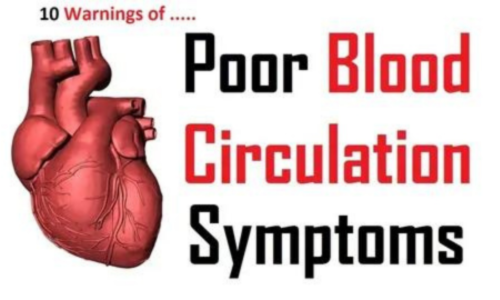
Your body stops working properly without water, so it is essential to keep your body hydrated. To stay hydrated, you need to drink fluids and eat foods rich in water content.
Sometimes, your body may lose more water than usual. This can be due to strenuous physical activity, excessive sweating, diarrhea, vomiting, diabetes, and frequent urination.
This causes an electrolyte imbalance in your body, leading to dehydration and making it difficult for your body to function at its best.
Many people do not realize when their body lacks enough water. If you understand the signs of dehydration, it will help you know when you need to increase your water intake.
Here are the top 10 warning signs that your body is lacking water.
Headaches and dizziness
Some possible signs of a lack of water in your body are headaches and dizziness. Low hydration can lead to a decrease in the amount of fluid surrounding the brain, which protects it from minor shocks and movements.
Furthermore, dehydration reduces the flow of oxygen and blood to the brain.
A recent report published in the Handbook of Clinical Neuroscience highlights the potential triggers for migraines and tension headaches, and dehydration is one of them.
Instead of popping a pill when you have a headache, drink a glass of water. If your headache is caused by dehydration, it will go away soon.
Brain fog or poor concentration
The human brain definitely shows signs of dehydration because it is made up of about 90 percent water. A lack of water in the brain can affect decision-making, memory, and mood.
Dehydration can be a cause of brain fog symptoms, such as forgetfulness and difficulty concentrating, thinking, and communicating.
According to a 2013 study published in Clinical Autonomic Research, dehydration is one of the most common causes of brain fog, along with fatigue, lack of sleep, standing for long periods, and feeling faint.
A 2011 study published in the British Journal of Nutrition found that people who were mildly dehydrated performed worse on cognitive tasks and also reported difficulty making decisions. There were also adverse mood changes due to fatigue and anxiety.
Another study was published in 2011 in the Journal of Nutrition. According to this study, it was concluded that deterioration of mood, increased perception of difficulty of task, decreased concentration, and headache symptoms were caused by dehydration in 1.36 percent of females.
Halitosis and Dry Mouth
Another sign that your body is lacking in water is bad breath. Your body produces less saliva due to lack of water. This leads to an overgrowth of bacteria in the mouth, which results in bad breath or halitosis.
You can have dry mouth along with bad breath. Water acts as a lubricant that keeps the mucous membranes in your throat moist, thus preventing dry mouth.
Constipation and other digestive problems
Water helps lubricate the digestive tract and keeps the digestive system flexible and clean. This helps maintain regular bowel movements and prevents constipation.
Stools can harden due to excessive fluid loss due to diarrhea or vomiting. Lack of water in the body can cause heartburn and indigestion.
According to a 2003 study published in the European Journal of Clinical Nutrition, fluid loss and fluid restriction can worsen constipation. Therefore, it is essential to stay hydrated to prevent constipation.
Food Cravings
You should drink a glass of water before snacking the next time you feel a sudden hunger pangs or a craving for food. When your body is dehydrated, your body sends false signals to your brain that you are hungry, when in fact you are thirsty.
Due to the loss of water and electrolytes in your body, this can cause you to crave salty foods. Simply drink a sports drink that is made up of sodium, or you can make your own lemon water by mixing the juice of one lemon in a glass of water with a teaspoon of salt.
When your body is struggling to produce glycogen, you may feel a strong desire for something sweet. You can choose fruits like watermelon, papaya, or berries that have a high water content in addition to being sweet.
Frequent Urination and Color Changes
Believe it or not, your body may be lacking in water if you don’t use the toilet every few hours. Drinking a healthy amount of water will lead to regular urination, about four to seven times a day. Not urinating at regular intervals can be a problem because your body releases toxins through urination.
You should also monitor the color of your urine. It is one of the main indicators of your body’s water levels. Clear or light-colored urine means that your body is well hydrated, while dark yellow or amber urine indicates concentrated urine and is usually a symptom of dehydration.

Leave a Reply